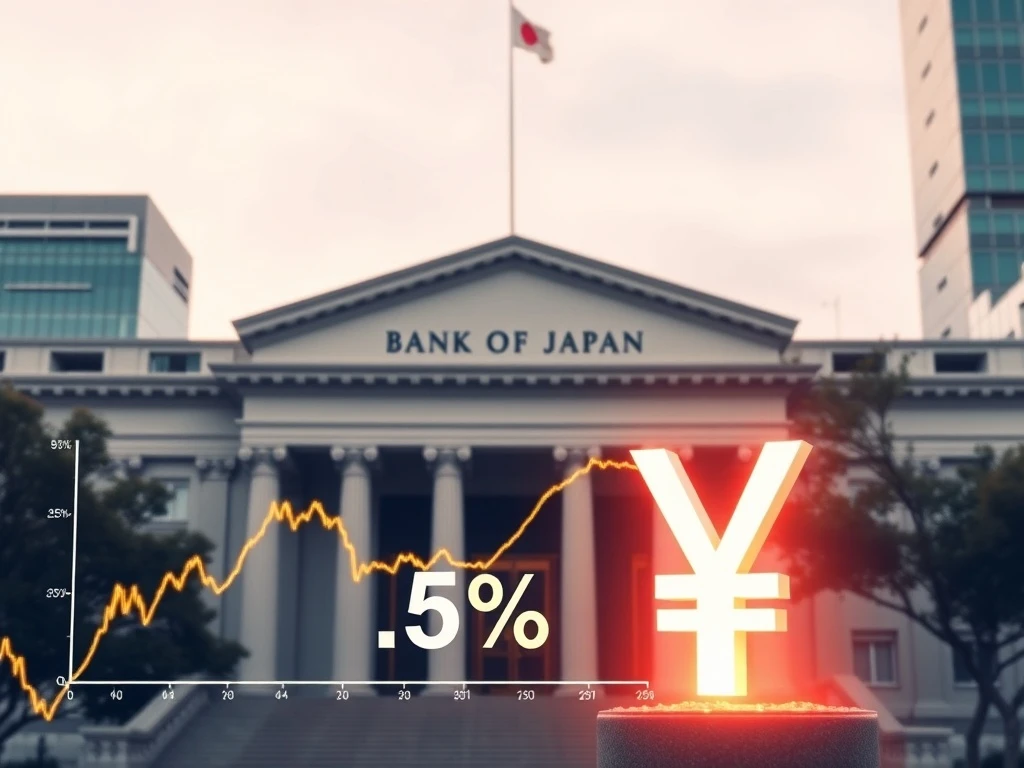BoJ Holds Steady at 0.5% Rate: Cautious Policy Normalization and Inflation Risks

The Bank of Japan (BoJ) has once again held its benchmark interest rate at 0.5%, signaling a cautious approach to policy normalization as it monitors inflation and wage growth. This decision, widely anticipated by markets, reflects the central bank’s careful balancing act in a complex global economic environment. For cryptocurrency investors, understanding these macroeconomic shifts is crucial, as they influence risk appetite and capital flows across all asset classes.
Why Did the BoJ Hold Interest Rates at 0.5%?
The BoJ’s decision to maintain the 0.5% rate stems from several key factors:
- Inflation Monitoring: The central bank seeks sustainable inflation driven by domestic demand rather than temporary cost-push factors.
- Wage Growth: Recent Shunto wage negotiations showed promising increases, but the BoJ wants to see broader consumer demand before tightening further.
- Global Uncertainty: Geopolitical tensions and potential trade slowdowns create a complex backdrop for policy decisions.
How Does BoJ Policy Affect Cryptocurrency Markets?
While not directly impacting digital assets, the BoJ’s monetary policy creates ripple effects:
| Factor | Impact on Crypto |
|---|---|
| Stable rate differentials | Supports carry trades, potentially increasing liquidity for risk assets |
| Weaker yen | May drive Japanese investors to seek higher returns in crypto |
| Global risk sentiment | BoJ caution could signal broader economic concerns affecting all markets |
What’s Next for BoJ Monetary Policy?
The central bank has emphasized a data-dependent approach, with future decisions hinging on:
- Sustained inflation above the 2% target
- Evidence of wage-price spiral taking hold
- Stability in global financial conditions
Frequently Asked Questions
When might the BoJ raise rates again?
Most analysts expect the next potential hike in late 2025 or early 2026, contingent on inflation and wage data.
How does Japan’s policy differ from other major central banks?
The BoJ remains more dovish than the Fed or ECB, with rates significantly lower and a slower normalization pace.
Could BoJ policy trigger cryptocurrency volatility?
While not a direct driver, unexpected BoJ shifts could impact global liquidity conditions that affect all risk assets.
What’s the significance of the yen’s weakness?
A weak yen boosts Japanese exports but increases import costs, creating complex trade-offs for policymakers.









